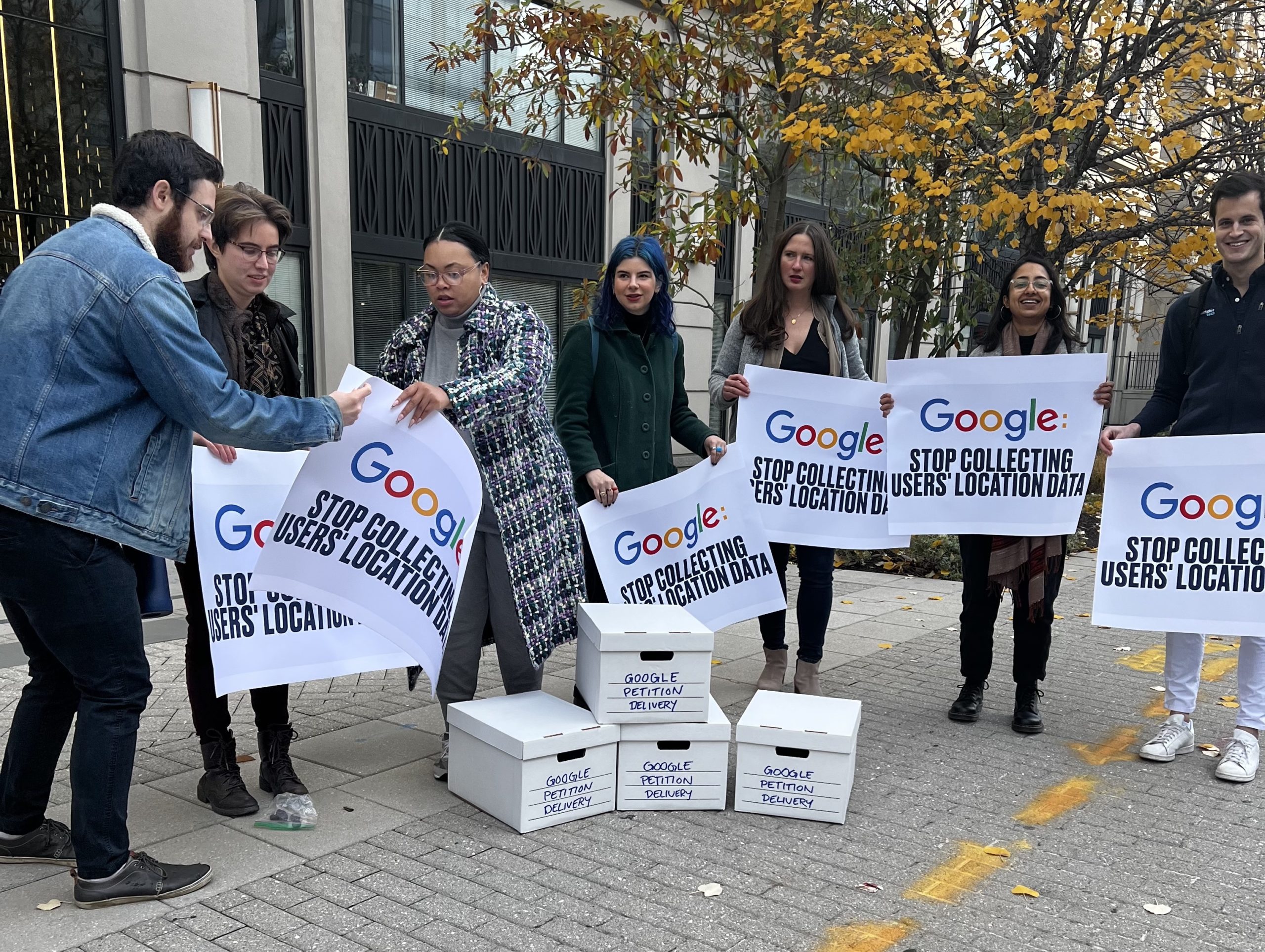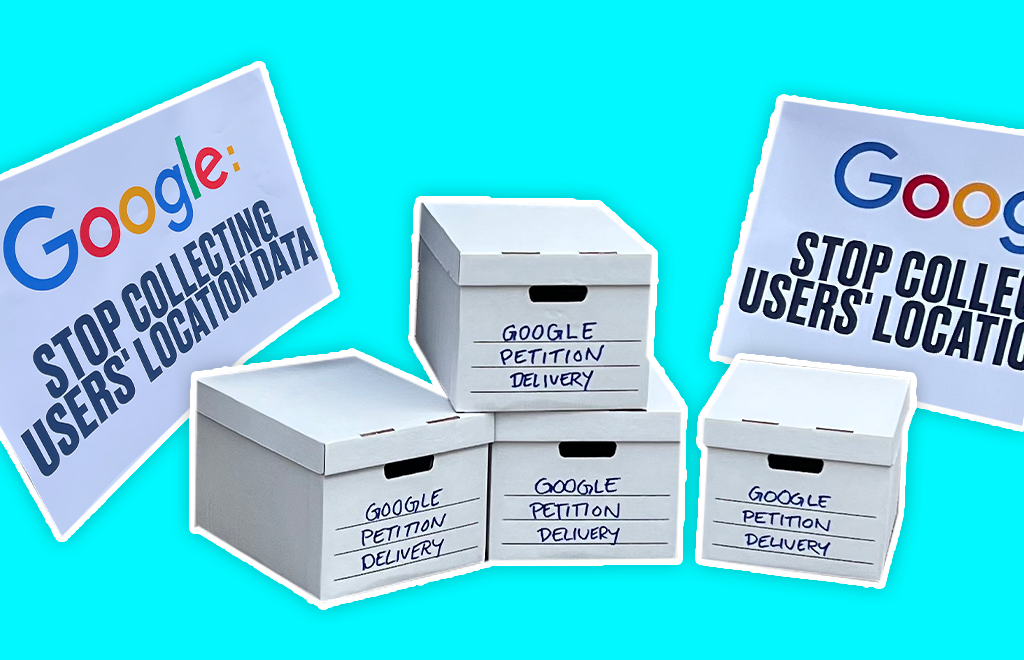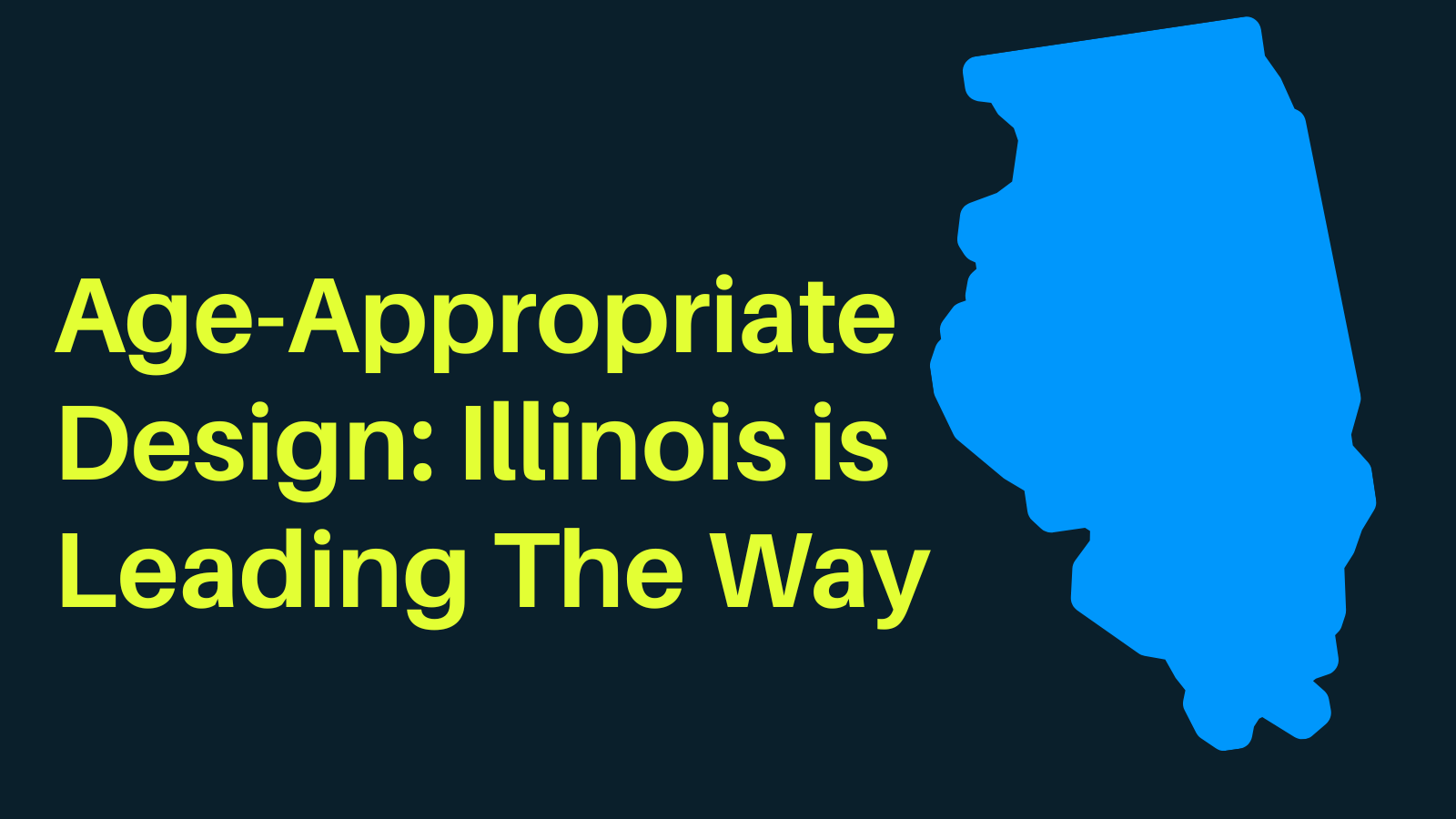25 Massachusetts Avenue is the address to Google’s Washington D.C. office. And on December 5th, Accountable Tech and Defending Rights and Dissent took a visit to hand deliver 160,000 petition signatures demanding Google stop its location data retention practices.
How it All Started
In the wake of the US Supreme Court’s overturning of Roe v. Wade, Google announced new policies to protect people’s abortion related data – specifically pledging to delete data entries from location history soon after users visit certain sensitive locations like abortion clinics. While some applauded Google’s new approach to privacy protection, we had questions.
In an attempt to gain clarity on how this new policy would work, we sent a letter to Google demanding answers. Months passed without a response, so we set out to find the answers on our own.
Testing Google’s location policy
Two Accountable Tech staff members, Giliann Karon and Aditi Ramesh, ran an experiment to test if Google’s new policy had truly been implemented. Using two newly purchased Google Android phones and Google Maps to find directions to Planned Parenthoods in both Pennsylvania and California, Giliann and Aditi set out to test if Google retains location history for people searching for and visiting Planned Parenthood locations.
The findings of the experiment — detailed in this report — revealed that Google still retained user location data when visiting an abortion clinic, months after the July policy update. Searches for directions to abortion clinics on Google Maps, as well as the route taken to visit a Planned Parenthood location, remained stored in the Android phone’s Google activity timeline for weeks after the travel occurred.
This means, the data which users were led to expect to delete automatically – as the company promised – could endanger those seeking reproductive care, especially in states that have banned abortions.
Thousands of Signatures Delivered to Google’s Door

We requested a meeting with Google to discuss our concerns about the implementation — or lack thereof — of its new policy as well as the troubling findings of our research. Despite numerous emails over the course of several weeks with Google employees who each insisted they had passed on our request to the “right team”, a meeting never took place. So with a collective 160,000 signatures on a petition demanding Google stop retaining sensitive location data, we showed up to Google’s office in D.C. to request a meeting in person. We were turned away at the door.
Several boxes of signatures and a brief protest later, there still has been no acknowledgement from Google.








